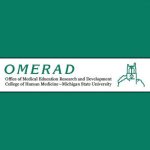Evidence-Based medicine in Pharmacy Practice
An article by Suzanne Albrecht on Evidence-Based Medicine in Pharmacy Practice.
Key Concepts addressed:- 2-1 Comparisons are needed to identify treatment effects
- 2-2 Comparison groups should be similar
- 2-5 People should not know which treatment they get
- 2-9 Reviews of fair comparisons should be systematic
- 2-13 Relative measures of effects can be misleading
- 3-1 Do the outcomes measured matter to you?
Details
The National Library of Medicine (NLM) introduced the term evidence-based medicine (EBM) as a medical subject heading to PubMed in 1997. It is defined as: “An approach of practicing medicine with the goal to improve and evaluate patient care. It requires the judicious integration of best research evidence with the patient’s values to make decisions about medical care. This method is to help physicians make proper diagnosis, devise best testing plan, choose best treatment and methods of disease prevention, as well as develop guidelines for large groups of patients with the same disease.” This definition originated from a 2006 issue of the Journal of the American Medical Association (JAMA). The evidence is retrieved from the published medical literature, and it is ranked according to the study design or type of paper.
Pharmacists should be well versed in EBM, so they may answer clinical questions with accuracy. EBM also allows the pharmacist to better scrutinize physician orders so as to identify a more suitable medication or a less expensive alternative.
Suzanne Albrecht
PharmD, Freelance Medical Writer, Woodstock, Illinois.
Published October 21, 2009



